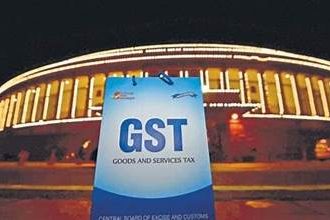Uttarakhand Waqf Board Chairman Shadab Shams voiced strong support for the recently passed Waqf Amendment Bill, stating that the law benefits poor Muslims and should not be opposed. He criticized ongoing protests, labeling the demonstrators as “political Muslims” who, he said, do not represent the genuine concerns of the underprivileged. “Political Muslims Are Misleading People”:
Uttarakhand Waqf Board Chairman Shadab Shams voiced strong support for the recently passed Waqf Amendment Bill, stating that the law benefits poor Muslims and should not be opposed. He criticized ongoing protests, labeling the demonstrators as “political Muslims” who, he said, do not represent the genuine concerns of the underprivileged.
“Political Muslims Are Misleading People”: Shams
In an interview with ANI, Shams stated, “The Waqf Amendment Bill is designed to help poor Muslims. Those who are protesting are not from poor communities; they are political figures using religion for personal gain.”
He condemned the protest tactics, particularly the burning of effigies, which he said goes against Islamic values. “These acts mislead people and are not part of our faith,” he said.
Shams: BJP Will Protect Pasmanda Muslims’ Rights
Shams reassured Pasmanda Muslims, a marginalized section of the Muslim community, not to fear the new legislation. “The Bharatiya Janata Party (BJP) is fully committed to securing the rights of the poor and Pasmandas,” he asserted.
Nationwide Protests Emerge Against Waqf Bill
Meanwhile, various Muslim organisations, under the banner of the Joint Forum for Waqf Protection, organized protests in Kolkata, West Bengal. Protesters held signs reading “Reject Waqf Bill” and pledged to continue their movement to “reclaim rights.”
Parliament Passes Waqf Amendment Bill After Heated Debate
The Waqf Amendment Bill was passed in both Houses of Parliament during a late-night session. In the Lok Sabha, 288 MPs supported the bill, while 232 opposed it. In the Rajya Sabha, 128 voted in favor and 95 against.
Bill Focuses on Transparent Management of Waqf Properties
The revised legislation was introduced following suggestions from the Joint Parliamentary Committee, which reviewed the original 2023 draft. The bill aims to:
- Improve transparency and efficiency in managing Waqf properties
- Modernize the registration process
- Promote the use of technology to maintain and secure Waqf records
The bill updates the Waqf Act of 1995, addressing its shortcomings and aiming to strengthen Waqf Board governance nationwide.

















Leave a Comment
Your email address will not be published. Required fields are marked with *